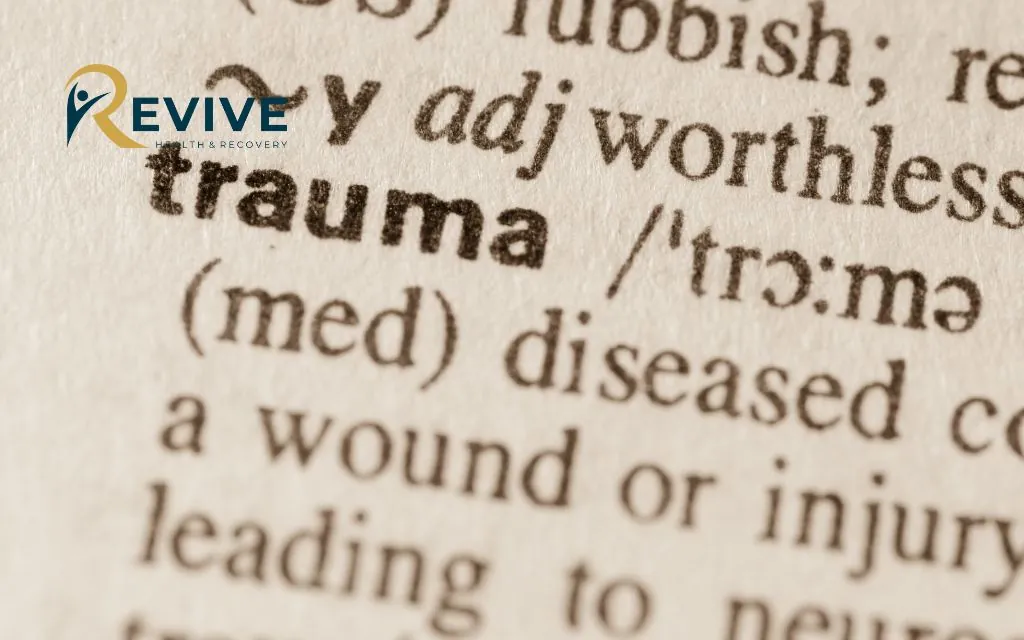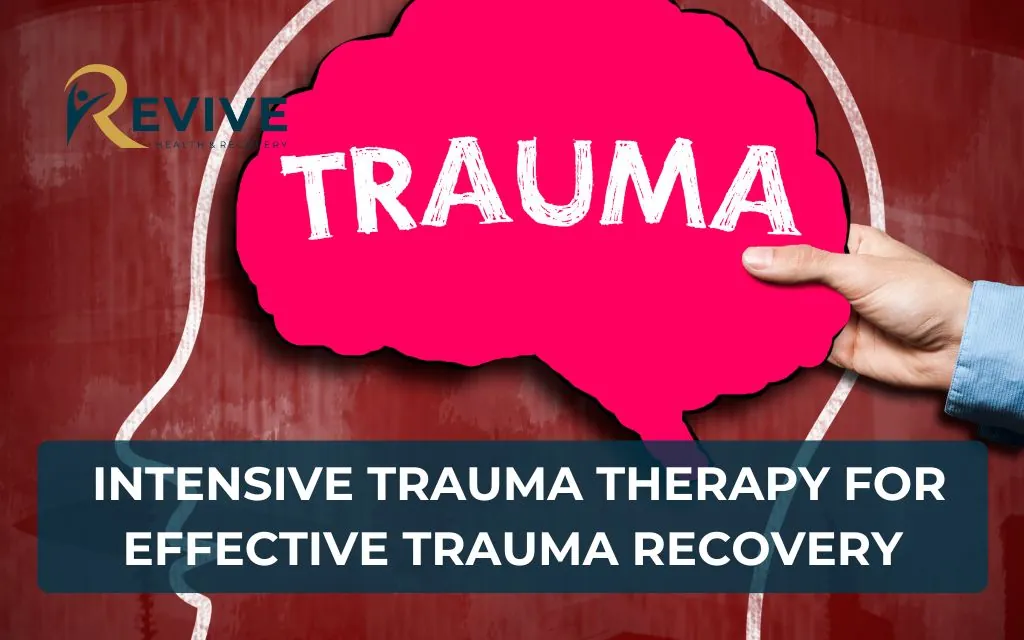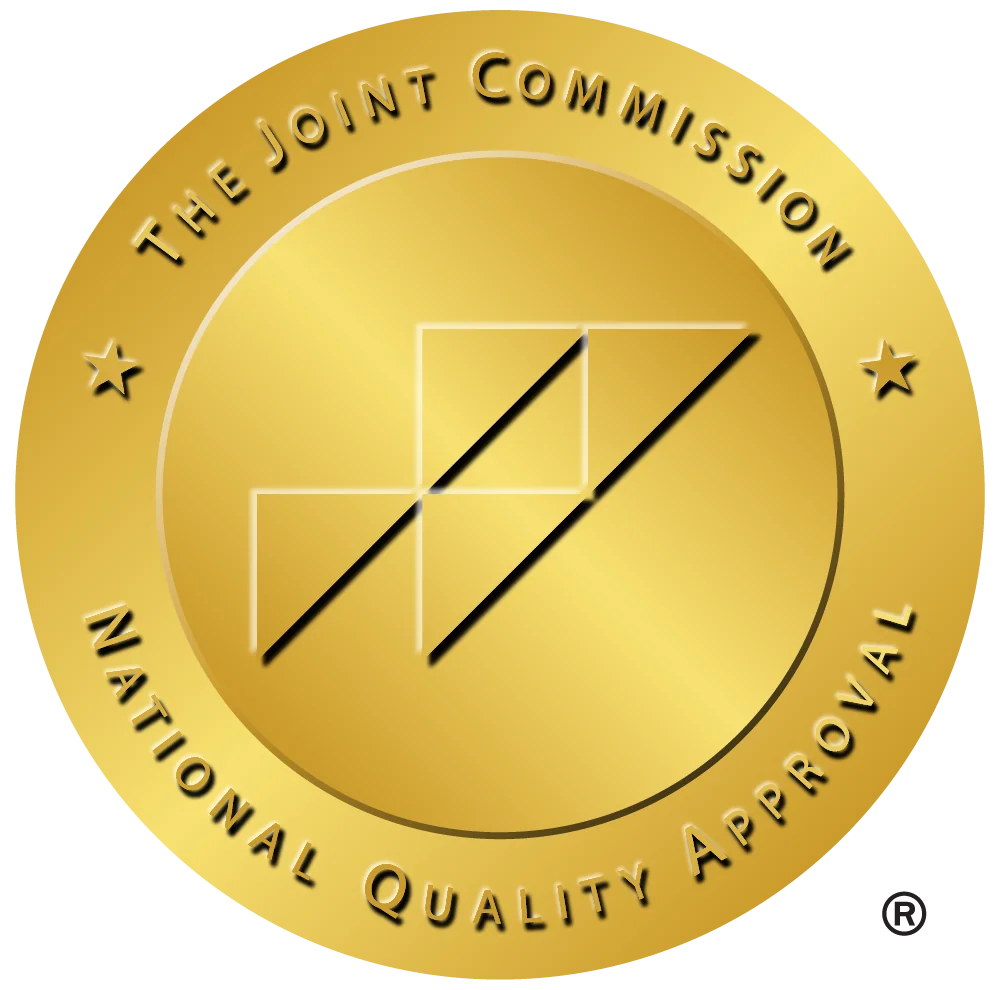In Colorado, nearly 1 in 5 adults report experiencing trauma-related stress – yet healing doesn’t have to take years. For Denver residents carrying the weight of past trauma, intensive trauma therapy offers a focused, accelerated path to recovery. This approach condenses months of traditional therapy into days or weeks, providing relief when trauma’s burden feels overwhelming.
Since the pandemic, Denver’s mental health needs have grown substantially. More people now seek efficient, effective solutions for trauma recovery that fit into busy lives. If you’re struggling with traumatic experiences, you’re not alone – and specialized help is available right here in Denver.
What Is Intensive Trauma Therapy?
Definition and Overview
Intensive trauma therapy is a concentrated form of psychotherapy that delivers multiple sessions over a compressed timeframe. Rather than spreading treatment over months or years, this approach provides immersive therapeutic experiences over days or weeks. These programs specifically target trauma recovery for conditions including PTSD, childhood abuse, grief, accidents, and complex trauma, as outlined by the National Institute of Mental Health in their comprehensive overview of PTSD..
The concentrated nature of this therapy creates a momentum that helps break through barriers that might take months to address in traditional therapy settings. Treatment centers in Denver offer various intensive formats designed to facilitate deeper processing and integration of traumatic experiences.
How It Differs from Traditional Therapy
Traditional therapy typically involves weekly 50-minute sessions that may continue for months or years. Intensive trauma therapy fundamentally changes this model:
- Frequency: Daily sessions instead of weekly appointments
- Duration: Multiple hours per day versus one-hour meetings
- Immersion: Deep, continuous work on specific trauma versus addressing various issues
- Momentum: Maintains therapeutic progress without weekly interruptions
Think of intensive trauma therapy as a deep dive into healing rather than a slow wade into recovery. This immersive experience allows for breakthrough moments that weekly therapy might not facilitate as quickly. Many Denver treatment centers structure intensive programs to compress months of traditional therapy into a matter of days.

Why Denver Chooses Intensive Trauma Therapy
Denver’s unique demographic and lifestyle factors make intensive trauma therapy particularly valuable here. The city has seen rising trauma cases linked to workplace stress, burnout, and a significant veteran population. Additionally, Colorado’s outdoor adventure culture means some residents experience accidents requiring trauma treatment.
The concentrated format appeals especially to:
- Busy professionals unable to commit to months of weekly therapy
- Parents who can’t find consistent weekly childcare
- First responders with unpredictable schedules
- Business travelers who aren’t in Denver consistently
- College students needing help during academic breaks
Weekend intensive trauma therapy Denver has become increasingly popular, allowing residents to address trauma without disrupting work schedules. Short-term intensive trauma counseling provides an alternative for those who need quick, effective intervention without long-term commitments.
Types of Intensive Trauma Therapy Programs in Denver
Intensive Outpatient Programs (IOP)
Intensive outpatient programs offer structured trauma treatment while allowing patients to maintain daily responsibilities, a format explored in depth by Verywell Mind. At Revive Health Recovery, IOPs are divided into two specialized tracks:
Primary Mental Health IOP
This program focuses specifically on trauma processing and mental health concerns like PTSD, anxiety, and depression stemming from traumatic experiences, often incorporating approaches like trauma-informed stabilization treatment to ensure emotional safety and recovery. The structure typically includes:
- Trauma-focused therapy sessions
- Emotional regulation skills development
- Mindfulness and grounding techniques
- Cognitive restructuring for trauma-related thoughts
Substance Use IOP
This track addresses trauma in conjunction with substance use disorders, recognizing the common connection between trauma and addiction. Components include:
- Dual diagnosis treatment addressing both trauma and substance use
- Relapse prevention strategies
- Trauma processing to address root causes of substance use
- Recovery skills development alongside trauma healing
Both IOP options at Revive Health Recovery typically include:
- 3-5 days of treatment per week
- 3-4 hours of therapy per day
- Combination of individual and group sessions
- Evening options for working professionals
These specialized IOP tracks ensure treatment addresses the specific needs of each client, whether they’re dealing primarily with trauma-related mental health symptoms or struggling with both trauma and substance use issues.
EMDR-Based Intensive Therapy
Eye Movement Desensitization and Reprocessing (EMDR) has revolutionized trauma treatment, and Denver has become a hub for intensive trauma therapy with EMDR, a method explained in detail by the Mayo Clinic. This approach helps the brain process traumatic memories through bilateral stimulation, often achieving in hours what might take months with talk therapy alone.
EMDR intensives typically involve:
- Multiple extended sessions over consecutive days
- Complete protocol implementation without weekly interruptions
- Deep processing of traumatic material in a contained timeframe
- Integration periods between sessions for processing
Many Denver clinics specialize in this modality, making the city an excellent location for accelerated trauma treatment Denver through specialized EMDR protocols.

Weekend and Short-Term Retreats
For Denver residents with limited availability, weekend intensive trauma therapy provides concentrated treatment in a retreat-like setting. These programs typically run Friday through Sunday and may include:
- Extended EMDR or trauma-focused therapy sessions
- Group processing components
- Trauma-informed yoga and mindfulness practices
- Body-based interventions to release stored trauma
- Nature components leveraging Colorado’s environment
These retreats create a container for deep work while fitting into busy schedules, making them popular among professionals and parents in the Denver area.
Therapy for Veterans and First Responders
Denver’s military and first responder communities benefit from specialized intensive trauma programs addressing their unique experiences. These tailored programs often include:
- Trauma processing specific to combat or emergency response experiences
- Peer support from others with similar backgrounds
- PTSD-specific protocols and interventions
- Family involvement components for reintegration support
These specialized intensive options recognize the distinct trauma profiles of these populations and provide culturally competent care.
Who Can Benefit from Intensive Trauma Therapy?
Intensive trauma therapy in Denver serves diverse populations facing various traumatic experiences, which are broadly defined by Psychology Today as events that overwhelm an individual’s ability to cope, including:
- Survivors of childhood abuse or neglect
- Individuals experiencing PTSD from accidents or assaults
- Those grieving traumatic losses
- People who have plateaued in traditional weekly therapy
- Individuals with complex or developmental trauma
- Anyone seeking accelerated healing from trauma-related symptoms
Denver residents with busy schedules particularly benefit from the condensed format, which delivers effective treatment without requiring months of weekly commitments. The intensive approach often works well for people who have tried traditional therapy but found progress too slow or inconsistent.

Key Benefits of Intensive Trauma Therapy
Faster Healing for Deep Trauma
The concentrated nature of intensive trauma therapy creates momentum that accelerates healing. By addressing trauma daily rather than weekly, the brain maintains therapeutic progress without interruption. Many patients report achieving in days or weeks what might have taken months or years in traditional therapy.
The immersive experience allows for deeper processing, creating coherent narratives from fragmented traumatic memories. Denver clinics often observe significant symptom reduction after just one week of intensive work.
Personalized Support
Denver’s intensive trauma programs provide individualized treatment plans addressing specific trauma types and symptoms. This personalization includes:
- Custom therapy combinations based on needs assessment
- Specialized protocols for different trauma types
- Adjustable intensity levels based on tolerance
- Targeted interventions for specific symptoms
This tailored approach ensures treatment addresses your unique trauma history and recovery needs rather than following a one-size-fits-all model.
Flexible Scheduling
Denver treatment centers recognize the need for accessibility, offering various scheduling options:
- Weekend intensives for working professionals
- Evening IOP programs for daytime employees
- Condensed week-long retreats for out-of-town visitors
- Split sessions accommodating complex schedules
These flexible options remove barriers to treatment for busy Denver residents who might otherwise postpone needed trauma therapy.
Neuroscience and Holistic Care
Modern intensive trauma therapy integrates evidence-based neurobiological approaches with holistic practices:
- EMDR and neurofeedback target brain patterns affected by trauma
- Somatic experiencing addresses trauma stored in the body
- Cognitive-behavioral therapy restructures trauma-related thoughts
- Mindfulness and yoga support nervous system regulation
Additionally, innovative treatments like ketamine therapy for complex PTSD offer rapid relief for severe trauma symptoms, complementing these approaches.
Denver’s proximity to nature also allows programs to incorporate outdoor elements, leveraging Colorado’s environment as part of the healing process.

How Intensive Trauma Therapy Works
Common Techniques
Denver treatment centers utilize several evidence-based approaches in intensive formats:
EMDR (Eye Movement Desensitization and Reprocessing)
This approach uses bilateral stimulation to help the brain process traumatic memories, reducing their emotional charge and physical symptoms, as detailed by the EMDR International Association. In intensive formats, multiple EMDR sessions happen over consecutive days, creating powerful momentum.
Cognitive Behavioral Therapy (CBT)
Intensive CBT helps identify and restructure trauma-related thought patterns and beliefs during concentrated treatment periods.
Internal Family Systems (IFS)
This “parts work” approach addresses different aspects of self affected by trauma, often revealing insights more quickly in intensive formats.
Somatic Therapies
Body-based interventions help release trauma stored physically, including sensorimotor psychotherapy and somatic experiencing.
Trauma-Informed Yoga and Mindfulness
These practices support nervous system regulation between therapy sessions in intensive programs.
Program Structure
Denver intensive trauma therapy programs typically follow structured formats:
Multi-Day Retreats
- 2-5 consecutive days
- 6-8 hours of therapy daily
- Combination of modalities
- Evening integration activities
Week-Long Intensives
- 5-7 days of treatment
- Morning and afternoon sessions
- Mid-day integration periods
- Graduated intensity levels
Intensive Outpatient Programs (IOP)
- 3-5 days per week
- 3-4 hours per session
- Combination of individual and group work
- Several weeks duration with decreasing frequency
These structured approaches provide the framework for deep, transformative work while maintaining appropriate pacing and support.
Finding Intensive Trauma Therapy in Denver
Choosing a Treatment Center
When seeking intensive trauma therapy in Denver, consider these factors:
Verify Provider Credentials Ensure therapists hold proper licenses and specific training in trauma treatment modalities like EMDR or somatic experiencing.
Research Treatment Approaches Different centers specialize in various trauma techniques—find one aligned with your needs and preferences.
Read Client Experiences Look for testimonials or reviews from others who’ve completed the program.
Understand Program Structure Examine the timeline, daily schedule, and what support exists between sessions.
Insurance and Financing Options Check whether the center works with your insurance or offers payment plans.
If you need to find intensive trauma treatment center Denver that provides comprehensive care, Revive Health Recovery stands as a trusted provider, offering intensive trauma therapy with highly trained specialists, flexible program options, and even inpatient trauma treatment for those needing round-the-clock support.
Denver’s Weekend and Short-Term Options
Denver offers numerous weekend and short-term intensive options for those with limited availability:
- Friday-Sunday retreat-style programs
- 3-5 day condensed treatment plans
- Partial-week intensives with follow-up support
- Evening and weekend IOP schedules
These options make trauma treatment accessible even for Denver’s busiest residents, eliminating the need to travel elsewhere for specialized care.
For those unable to attend in-person sessions, online trauma therapy provides a flexible alternative with the same high-quality care.

How to Enroll in a Program
The process to enroll in intensive trauma therapy program Denver involves several steps:
- Research and Initial Contact: Explore providers and reach out for basic information.
- Consultation: Speak with a trauma specialist to discuss your needs and history.
- Assessment: Complete a thorough evaluation to determine appropriate treatment.
- Program Selection: Choose the format that fits your needs and schedule.
- Preparation: Complete pre-program tasks and arrangements.
- Begin Treatment: Start your intensive trauma recovery journey.
Contact Revive Health Recovery for a free consultation to discuss how their Denver intensive trauma therapy programs might benefit your specific situation.
Revive Health Recovery
1427 S Federal Blvd, Denver, CO 80219
(303) 268-4655
contact@revivehealthrecovery.com
FAQs About Intensive Trauma Therapy
How long do intensive trauma therapy programs typically last?
Programs range from weekend intensives (2-3 days) to week-long retreats (5-7 days) to multi-week IOPs. Revive Health Recovery offers various duration options to accommodate different needs and schedules.
Is intensive trauma therapy covered by insurance?
Coverage varies by provider and plan. Many Denver centers, including Revive Health Recovery, work with insurance companies and offer transparent financing options for portions not covered.
What types of trauma can be treated with intensive approaches?
These programs address various traumas including PTSD, childhood abuse, sexual assault, combat trauma, accidents, natural disasters, and traumatic grief. Revive Health Recovery specializes in addressing diverse trauma profiles with customized treatment.
Is intensive trauma therapy right for me?
This approach works best for those seeking quick, deep healing who can commit to concentrated treatment periods. Revive Health Recovery is the best service provider in Denver for determining if this is the right approach for your situation.
What is a typical intensive trauma therapy session like?
Sessions are longer (2-3 hours), more in-depth, and more focused than traditional therapy. They include trauma processing, emotional regulation work, and integration periods. Revive Health Recovery structures sessions to balance intensity with support.
Why Revive Health Recovery Stands Out
Revive Health Recovery has established itself as a leader in intensive trauma therapy in Denver through several distinguishing factors:
- Evidence-Based Excellence: Specialized training in EMDR, CBT, and other trauma-specific modalities
- Holistic Integration: Complementary approaches including mindfulness, somatic work, and nutrition
- Flexible Programming: Weekend intensives, evening IOP options, and customized schedules
- Trauma-Informed Environment: Spaces designed for safety, comfort, and nervous system regulation
- Comprehensive Aftercare: Continued support ensuring treatment gains maintain after program completion
The center combines clinical expertise with genuine compassion, creating a sanctuary for trauma recovery in Denver. Their multidisciplinary team works collaboratively to address the biological, psychological, and social impacts of trauma.
Take Your Next Step Toward Healing
Intensive trauma therapy offers Denver residents a powerful alternative to traditional weekly therapy. By condensing months of treatment into days or weeks, these programs provide accelerated healing for those carrying the burden of past trauma.
Denver’s range of options – from weekend intensives to EMDR-focused programs to comprehensive IOPs – ensures that help is available regardless of your schedule constraints or specific trauma history.
Ready to heal faster and more completely? Explore intensive trauma therapy options at Revive Health Recovery today. Their trauma specialists can help you determine the right approach for your unique situation and guide you toward lasting recovery.







